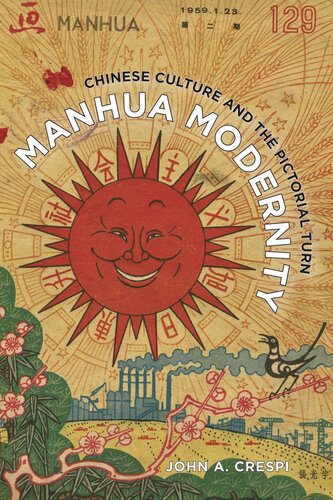

Most ebook files are in PDF format, so you can easily read them using various software such as Foxit Reader or directly on the Google Chrome browser.
Some ebook files are released by publishers in other formats such as .awz, .mobi, .epub, .fb2, etc. You may need to install specific software to read these formats on mobile/PC, such as Calibre.
Please read the tutorial at this link: https://ebookbell.com/faq
We offer FREE conversion to the popular formats you request; however, this may take some time. Therefore, right after payment, please email us, and we will try to provide the service as quickly as possible.
For some exceptional file formats or broken links (if any), please refrain from opening any disputes. Instead, email us first, and we will try to assist within a maximum of 6 hours.
EbookBell Team

0.0
0 reviewsA free open access ebook is available upon publication. Learn more at www.luminosoa.org.
From fashion sketches of smartly dressed Shanghai dandies in the 1920s, to multipanel drawings of refugee urbanites during the war against Japan, to panoramic pictures of anti-American propaganda rallies in the early 1950s, the polymorphic cartoon-style art known as manhua helped define China’s modern experience. Manhua Modernity offers a richly illustrated, deeply contextualized analysis of these illustrations across the lively pages of popular pictorial magazines that entertained, informed, and mobilized a nation through a half century of political and cultural transformation. In this compelling media history, John Crespi argues that manhua must be understood in the context of the pictorial magazines that hosted them, and in turn these magazines must be seen as important mediators of the modern urban experience. Even as times changed—from interwar-era consumerism to war-time mobilization to Mao-style propaganda—the art form adapted to stay on the cutting edge of both politics and style.